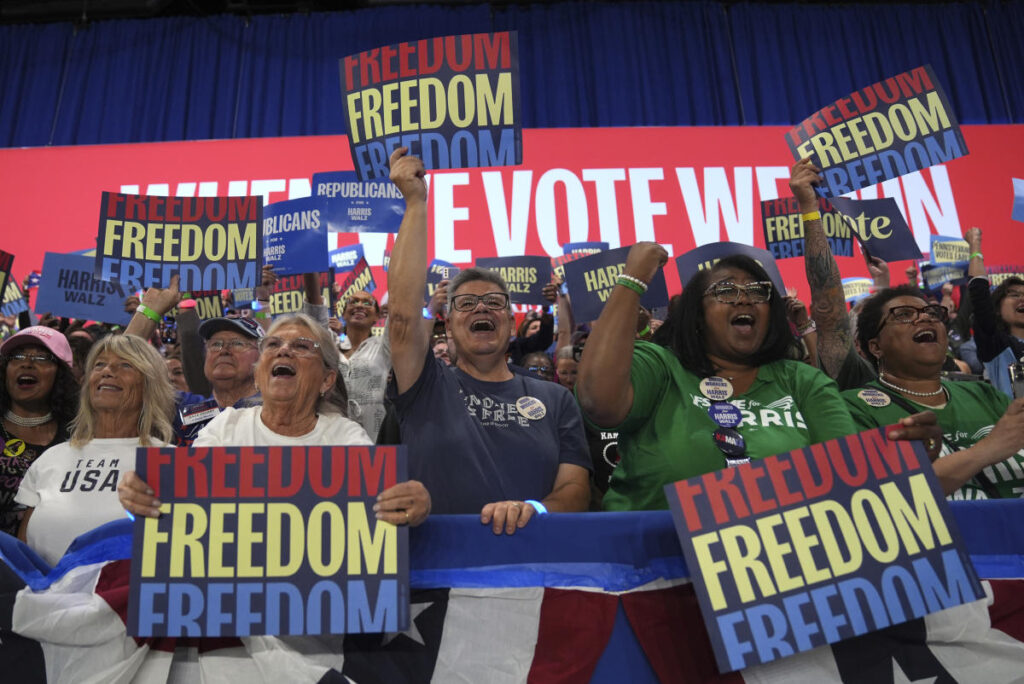In the lead-up to the presidential election, President Joe Biden faced criticism for his comments suggesting that some of Donald Trump’s supporters could be considered “garbage.” Biden clarified that his remarks were aimed at the rhetoric used by Trump and not directed at the individuals themselves. Reactions from voters at rallies highlighted the deep divide between supporters of both candidates. Samantha Leister, who attended a rally for Kamala Harris, pointed out that while some Trump supporters may be misguided, other attendees at Trump’s event described Harris supporters as uneducated and lost in a web of lies. Both groups expressed a significant distrust and disdain toward each other, evidencing a deteriorating political climate that extends beyond mere disagreement and pushes individuals into stark political tribes.
Interviews from battleground states reveal a growing chasm fueled by decades of polarization and recent upheavals, including the pandemic and protests against racial injustice. Many voters expressed their concerns about the future of America, indicating that the country might be headed for newfound divisions. Braxton Wadford, a young Trump supporter, articulated fears about the post-election landscape, fearing that Americans might consider leaving the country due to the political climate. Meanwhile, Jennifer Phelan, a Harris campaign volunteer, struggled to understand why the election would be so contentious and likened it to a clear-cut battle of good versus evil.
The political animosity and polarization have been on a steady rise, corroborated by research organizations like Pew Research Center. Findings indicate that Democrats and Republicans are increasingly viewing each other with suspicion, labeling members of the opposing party as unintelligent and immoral. An AP-NORC poll from September echoed these sentiments, revealing that negative perceptions of the opposing party are common among the electorate. Many exposed their grievances about their political opponents, with some individuals like Travis Waters stating that Trump supporters live “detached from reality.” The widening disconnect has further complicated interpersonal dynamics, leading to rifts even within families.
Trump’s enduring influence on American politics has both exacerbated and entrenched these divisions. Throughout his campaign, he has repeatedly demonized political opponents, painting them as threats to his supporters’ way of life. His rhetoric, including remarks about the treatment of his followers, reinforces a sense of persecution within his base. Biden’s comments, which were misinterpreted by some as an attack on Trump supporters, illuminate the complexities of this ongoing struggle, particularly as his administration stresses the need for unity while navigating the realities of bipartisan animosity.
Personal anecdotes from rally attendees reflect the emotional weight of political support amid familial tensions. For participants like Norma Jeffcoat, supporting Trump has become a source of personal conflict with loved ones, who view her choice as emblematic of racism. The sentiment echoes throughout the community, where loyalty to Trump is deeply entwined with identity. Comparatively, attendees supporting Harris shared their experiences of trying to engage in dialogue that often concluded without resolution, showcasing a broader trend of avoidance in political conversations.
Despite the pervasive divide, some individuals express a yearning for dialogue and empathy across party lines. In a particularly hopeful moment, Annette Uhlenberg, who attended a Harris rally, made an effort by reaching out to Trump-supporting friends in a bid for open communication. Her attempt, though initially unreciprocated, symbolizes a small but critical endeavor to bridge the chasm that so many feel is embedded within the current political landscape. As both sides continue to navigate the tumultuous waters leading to the election, these conversations—or lack thereof—will ultimately shape the future of American political discourse.

